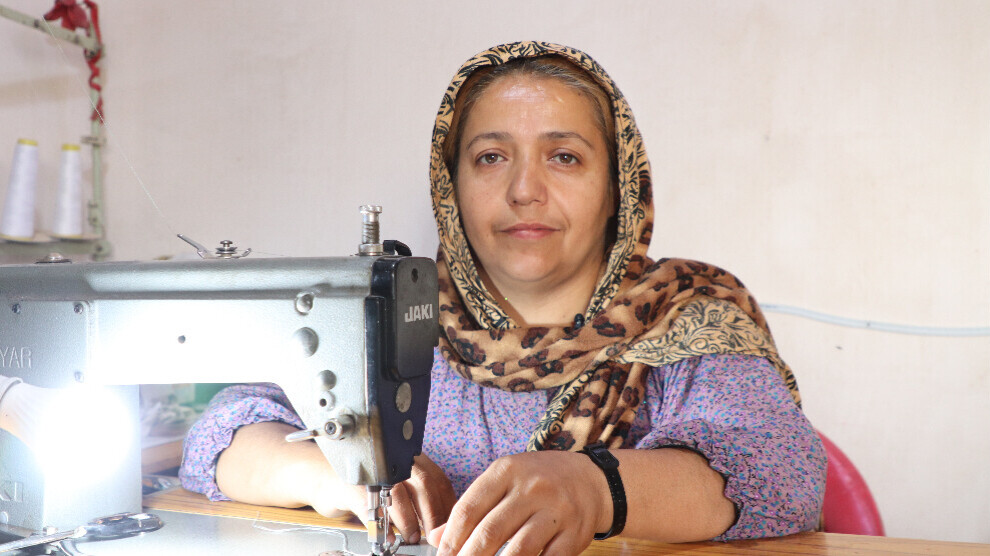Heyat Pîşkîn: We cannot meet our needs due to the embargo
Heyat Pîşkîn, who makes a living by working as a tailor in the Martyr Rustem Cudi Camp (Makhmour Refugee Camp), says they cannot meet their needs due to the embargo imposed on the camp by the Kurdistan Democratic Party (KDP).

BERJÎN KARA
Makhmour- The Kurdistan Democratic Party (KDP) has been imposing an embargo on the Martyr Rustem Cudi Camp (Makhmour Refugee Camp) since 2019. The KDP controls everything, including essential supplies at the entrance and exit of the camp. The residents of the camp face difficulties in their needs due to the embargo. In addition, the residents of the camp are often subjected to Turkish attacks while the United Nations (UN) and other countries remain silent against the attacks.
‘I have been working as a tailor for 16 years’
Resisting all obstacles and the embargo, the residents of the camp find different ways to earn a living. Heyat Pîşkîn, one of the residents of the camp, has worked as a tailor in the camp for 16 years. She learned how to sew from her mother. “My mother used to sew Kurdish clothes and casual clothes. I learned how to sew from her. Every day, I do the housework; take care of my children and work as a tailor. Women have to make great efforts in order to stand on their own legs,” she told NuJINHA.
She teaches her children how to sew
Now, Heyat Pîşkîn teaches her children how to sew. “Tailoring is a good job. My children want to learn how to sew. I feel happy when I sew clothes. In the morning, I first do the housework. Then, I bake bread and cook dinner for my children. After finishing my work at home, I start sewing clothes.”
‘We face difficulties in meeting our needs due to the embargo’
Speaking about the embargo imposed on the camp, Heyat Pîşkîn said, “When my sewing machine breaks or does not work properly, I cannot find the necessary equipment to fix it or a repair. Before, the road to Erbil was open and we used to go there to buy everything we needed. However, the road is closed now. We face difficulties in meeting our needs due to the embargo.”
